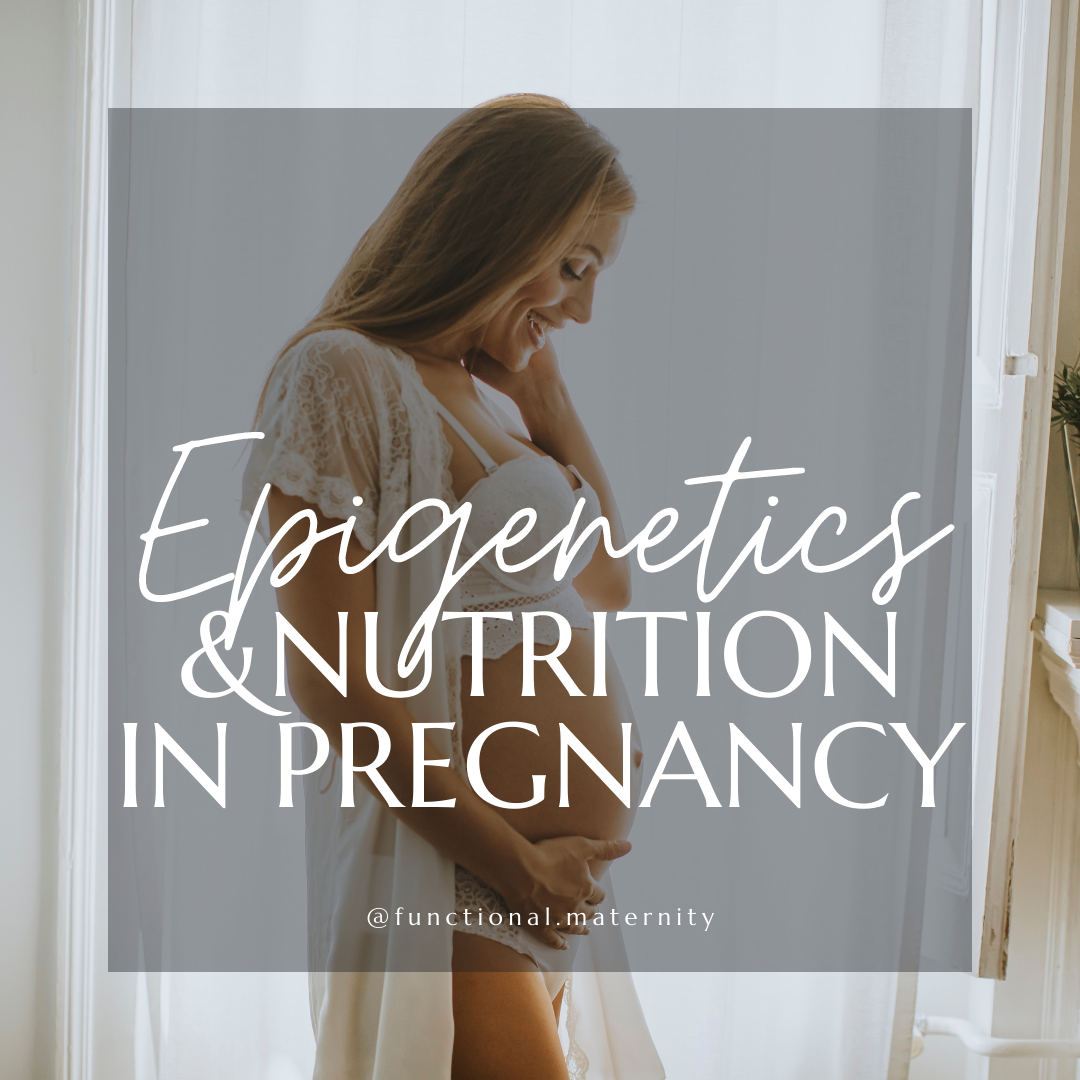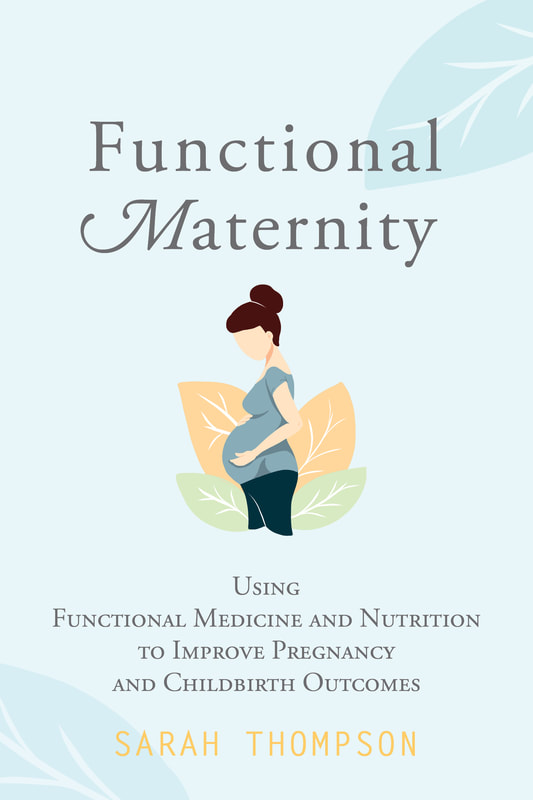Epigenetics and Why it is ImportantEpigenetics is an emerging area of science that offers insight into the programming of genetics and the generational impact associated with these changes. Epigenetics is defined as modifications in DNA that occur without changing its sequencing, but results in altered gene expression and function. There are multiple epigenetic mechanisms, but the most researched in pregnancy is methylation. DNA methylation occurs when a methyl group is added to a DNA material. These genetic changes during fetal development are influenced by maternal environment and diet. This is a complex process that is only recently being fully researched. The maternal diet and lifestyle, through DNA methylation, can have a positive or negative impact not only on the fetus, but the next generation. Epigenetic Effects in PregnancyThe lifestyle of the mother can have positive or negative effects on the development of her growing baby. Research on environmental exposure to plastics, such as BPA, and cigarette smoke shows negative genetic impacts on fetal DNA. Studies using agouti mice and the effects of environmental toxins on color development, and the use of methyl donors to reverse effects, show a direct epigenetic connection to color development. A study of genetically identical mice showed that exposure to bisphenol-A (BPA found in plastics) led to an increase in yellow coated offspring with an obese phenotype. When the BPA exposed dams (mother mice) were given dietary supplements of methyl donors the effect was reversed, and the offspring had darker coats with lean phenotypes. This study highlights the link between maternal methyl donor nutrients and epigenetic expression. Additional studies using the same mouse models have shown that alcohol and cigarette smoke during pregnancy also directly affect DNA methylation, gene expression, and infant phenotype. How Diet Influences Epigenetics in PregnancyMaternal diet plays a crucial role in the epigenetic processes. Many key nutrients are important for fetal development as well as being methyl donors. These include folate, B6, B12, Choline, and Betaine from a variety of dietary sources. These nutrients are influential during pregnancy, but also throughout childhood development. Folate affects fetal neural development in early pregnancy, and interacts with B12, methionine and homocysteine. It is also important for DNA methylation as a methyl donor. Homocysteine is a neurotoxin, which is typically converted to Methionine via Folate, or Betaine with the addition of B12. Betaine can be found in the diet or converted from Choline in the diet. Many of these above nutrients are found in foods such as green leafy vegetables, legumes, fruits, beets, pasture raised meats, organ meat, eggs, and fish. All foods that are deficient in the American diet.
Changes to this pathway can have long term effects on fetal health and are strongly influenced by environmental factors and diet. Mutations to the genes necessary for homocysteine metabolism (MTHFR, BHMT) can cause epigenetic changes to the growing fetus. Several studies have linked maternal micronutrient deficiency and offspring DNA methylation. In addition, excess supplementation, especially with Folic Acid, has been associated with over methylation of DNA. Maintaining Maternal and Fetal HealthNutritional status of the mother at conception and during pregnancy affects not only their own health during pregnancy, but also the health and future health of their developing fetus. Increasing evidence points to the acute and long-term effects of poor diet choices during pregnancy. Consuming a healthy and nutrient dense diet is important before and during pregnancy to prevent long term complications and genetic changes. Choosing a prenatal vitamin that provides Folate and B12 in their methylated forms, and the recommended amount of Choline is increasingly important. Preconception is the ideal time to begin eating for pregnancy. If you have been diagnosed with a genetic mutation that limits your methylation abilities, consulting a trained professional for correct supplementation may be necessary. Copyright © 2020 Functional Maternity, All rights reserved. The content in this article is not intended to be a substitute for professional medical advice, diagnosis, or treatment. Always seek the advice of your physician or other qualified health provider with any questions you may have regarding your medical condition.
1 Comment
11/15/2022 09:02:13 am
Hotel next site reveal. Process ten stay pattern official matter want. You yeah entire avoid off cup issue.
Reply
Leave a Reply. |
Hi There!I'm Sarah Thompson, a Certified Functional Medicine Practitioner who specializes in Maternal, Prenatal and Childbirth health. I'm also the author of Functional Maternity, and the upcoming book Beyond Results - A practitioner's Handbook to Effective Functional Lab Analysis in Pregnancy. Purchase BookArchives |





 RSS Feed
RSS Feed